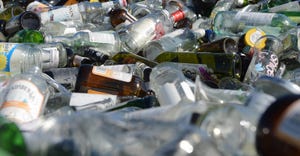Report Analyzes Expansion of New York State Bottle Bill
The study investigates the implications that adding wine and liquor bottles to the list of redeemable containers in the bottle bill would have.

Recycling Today reports that the New York Department of Environmental Conservation and the Rochester Institute of Technology’s Pollution Prevention Institute released a study on whether the state should expand its bottle bill program to include wine and liquor bottles.
The study investigates the implications that adding wine and liquor bottles to the list of redeemable containers in the New York State Bottle Bill would have. The study suggests that a 5-cent deposit on liquor and wine bottles could help to divert these glass bottles from municipal recycling and waste streams and increase recycling rates of wine and liquor bottles.
The study also notes that further research and consideration is needed before a decision can be made as to whether this is the best path for the state. Further research and consideration include but are not limited to the following:
Consumer willingness to return containers to a second set of locations (e.g., wine/liquor stores vs. grocery stores), which could significantly impact redemption rates.
Capacity of third-party pickup agents and beneficiators to transport and clean additional bottle bill glass.
Further research into the feasibility of other (non-bottle bill) options for the state to increase glass recycling.
More in-depth cost/benefit analysis that comprehends variability across business type, size and location (rural vs. urban) and whether the additional cullet could be cost competitive to raw material.
Recycling Today has more:
The New York Department of Environmental Conservation has completed a study on the state’s bottle bill in November to help determine whether the state should expand the program to include wine and liquor bottles. The Department of Environmental Conservation commissioned a study on expanding the state’s bottle bill through the help of the Rochester Institute of Technology’s Pollution Prevention Institute.
The study includes details on potential costs and benefits of expanding the program to include wine and liquor bottles.
About the Author
You May Also Like
.png?width=300&auto=webp&quality=80&disable=upscale)

